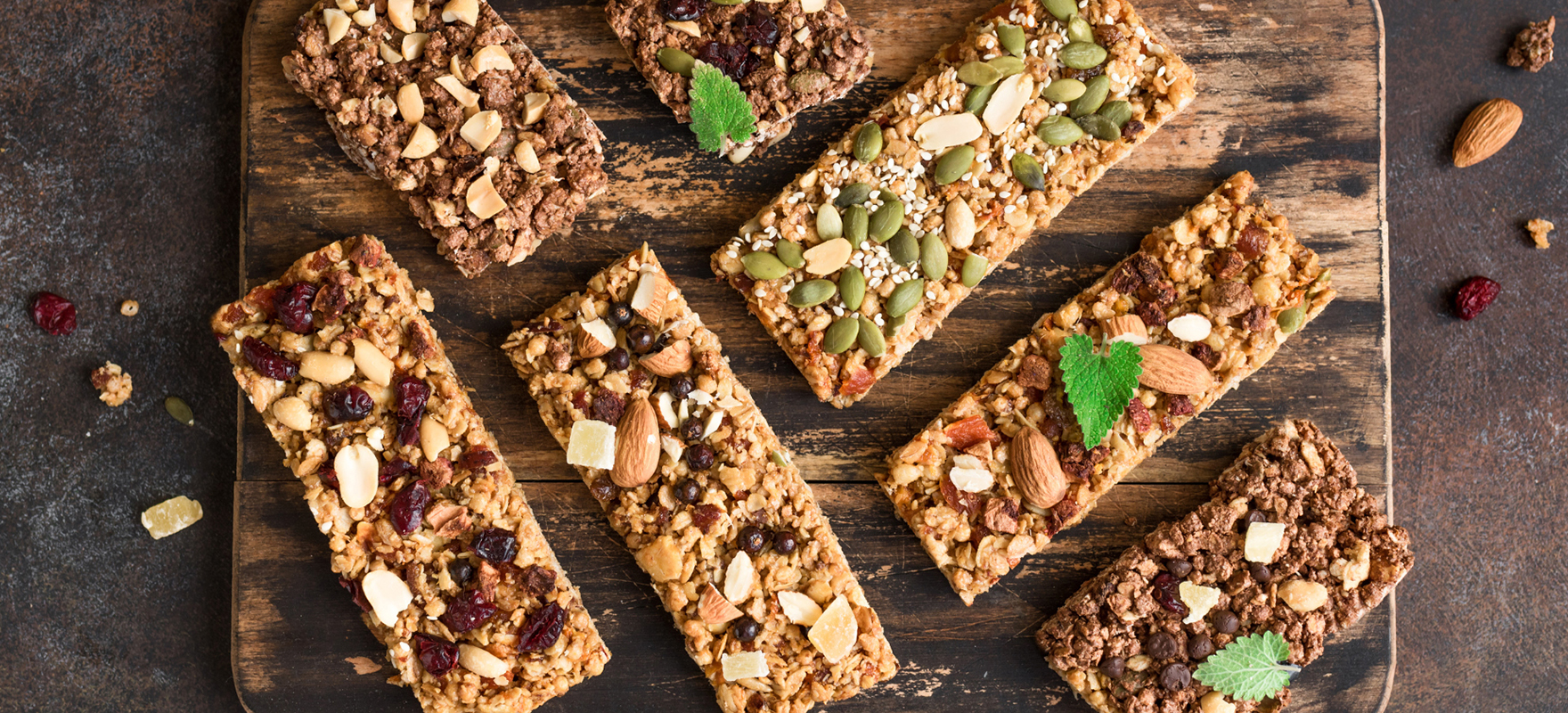When it comes to snacking, it’s tempting to grab something easy and convenient, but not necessarily nutritious. However, snack bars have become a popular choice for those who want a healthy and convenient snack option. But what exactly makes a snack bar “functional,” and how do the ingredients influence your health?
Functional foods are classified as foods that offer health benefits beyond basic nutrition. In the case of snack bars, this means that they contain ingredients that can help support various bodily functions, such as digestion, energy production, and immune function. Some snack bars may also be designed to help you achieve specific health objectives, such as losing weight or building muscle. Knowing the ingredients in your snack bar can assist you in making informed decisions about what you’re putting into your body.
If you’re ever feeling sluggish or tired chances are that something needs to change in your diet, a great way to start that journey might be snack bars that are full of nutritional value since you can pack them and you can always reach into your backpack or bag during the day.
The Role of Ingredients in Functional Snacks
Ingredients play a crucial role, as with every type of food not just snack bars, but still, the ingredients influence cannot be overstated. And when it comes to snack bars, the ingredients are everything. Seriously, they can make or break your health goals. Here are some of the ways that ingredients can influence the functionality of your snack:
Nutrient Density
The nutrient density of your snack is determined by the ingredients used. Snack bars that are made with whole food ingredients like nuts, seeds, and fruits tend to be more nutrient-dense than those made with refined sugars and flours. But you already know that.
Protein Content
Protein is an essential nutrient that your body needs to repair and build tissues. Snack bars that are high in protein can help you feel fuller for longer and provide sustained energy throughout the day. Look for snack bars that are made with protein-rich ingredients like nuts, seeds, and legumes. Protein content is especially important if you’re a fitness enthusiast and go to the gym regularly. Protein helps your muscles grow and give you energy. So, if you didn’t eat anything high in protein in a day, a snack bar that’s filled with it is your lifesaver.
Fiber Content
Fiber is another important nutrient that can help you feel fuller for longer and support healthy digestion. Fibers help regulate blood sugar levels and prevent cravings. So, when choosing your snack bar in the grocery store make sure to look for fiber-rich ingredients like oats and chia seeds.
Additives and Preservatives
Some snack bars contain additives and preservatives that can be harmful to your health. These ingredients can cause inflammation, disrupt hormone levels, and contribute to chronic diseases. Look for snack bars that are made with natural ingredients and avoid those that contain artificial colors, flavours, and sweeteners.
When selecting snack bars, prioritise those made with whole food ingredients. These bars are typically high in protein and fiber, making them a great snack option. Plus, they are free from harmful additives and preservatives, which can help you maintain good health.
Fats and Fatty Acids
Fats are an important source of energy for your body and play a role in brain function and hormone production. Snack bars may contain different types of fats, including saturated, unsaturated, and trans fats. It’s important to choose snack bars that contain healthy fats, such as monounsaturated and polyunsaturated fats. Some popular snack bar ingredients that are high in healthy fats and fatty acids include nuts, seeds, and coconut oil.
Snack bars can be a convenient and nutritious snack option when you choose ingredients that are high in protein, carbohydrates, fiber, and healthy fats. By paying attention to the nutritional profiles of snack bar ingredients, you can make informed choices that support your overall health and well-being.
Choosing the Right Snack Bar for Your Needs
When it comes to selecting a snack bar, someone’s individual needs could vary widely. For example, they might be looking for a bar that’s high in protein, low in sugar, gluten-free, vegan, or keto-friendly. On the other hand, they might simply want a bar that tastes good and provides a quick energy boost. Ultimately, the key is to understand what your priorities are and choose a snack bar that aligns with those needs.
Label Literacy: Understanding Ingredient Lists
One of the most important things to consider when choosing a snack bar is the ingredient list. It’s important to look beyond the flashy packaging and marketing claims to understand what’s actually in the product. Here are some tips for decoding ingredient lists:
Look for whole food ingredients: Choose snack bars that contain whole food ingredients like nuts, seeds, and fruits rather than highly processed ingredients.
Avoid added sugars: Many snack bars are loaded with added sugars, which can contribute to inflammation, weight gain, and other health problems. Look for bars with minimal added sugars or no added sugars at all.
Check for artificial additives: Look for bars with simple, natural ingredients.
Special Dietary Considerations
If you have special dietary considerations, such as food allergies or intolerances, it’s important to choose a snack bar that meets your needs. Here are some things to consider:
- Gluten-free: If you’re sensitive to gluten or have celiac disease, look for snack bars that are certified gluten-free.
- Dairy-free: If you’re lactose intolerant or follow a vegan diet, look for dairy-free snack bars.
- Nut-free: If you have a nut allergy, look for snack bars that are made without nuts or are produced in a nut-free facility.
Emerging Trends in Functional Snack Bars
It’s worth noting that plant-based ingredients are gaining more popularity in functional snack bars recently. Not only are they a fantastic source of nutrients, but they’re also eco-friendly. You’ll find nuts, seeds, and dried fruit as some of the most common plant-based ingredients used in snack bars.
One of the advantages of plant-based ingredients is that they’re often less processed than traditional ingredients. This means they retain more of their natural nutrients and are less likely to contain harmful additives. Many plant-based ingredients are gluten-free, which makes them a great option for those with gluten sensitivities.
Natural Sweeteners and Flavours
Did you know that functional snack bars are now using natural sweeteners and flavours instead of artificial ones? You’ll be glad to hear that this trend is gaining popularity because natural sweeteners and flavors are often healthier and provide a more satisfying taste. So, the next time you reach for a snack bar, look out for ones that use honey, maple syrup, and agave nectar as sweeteners.
But wait, there’s more! Natural flavours are also taking over the snack bar world. These flavors, derived from fruits, spices, or herbs, offer a more complex taste than artificial flavors. So, if you’re tired of bland and one-dimensional flavors, give a snack bar with natural flavours a try.
Thanks to this new trend, you can indulge in a snack bar or two (or three) without feeling guilty. It’s great to see that snack bar manufacturers are prioritising nutrition without compromising on taste. After all, who says healthy food can’t taste delicious?
Functional snack bars are becoming increasingly popular and for good reason! The latest trends show that many manufacturers are using plant-based ingredients, natural sweeteners, and flavours in their products. These changes reflect a growing demand for healthier and more sustainable snack options. By using these ingredients, snack bar manufacturers are able to create products that taste great and provide important nutrients for our bodies. It’s great to see the food industry moving towards healthier and more sustainable options!





